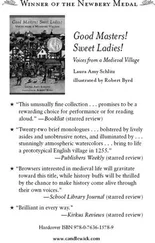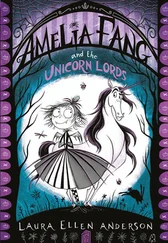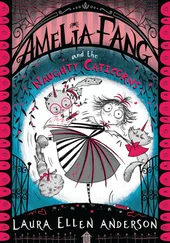Laura Schlitz - Splendors and Glooms
Здесь есть возможность читать онлайн «Laura Schlitz - Splendors and Glooms» весь текст электронной книги совершенно бесплатно (целиком полную версию без сокращений). В некоторых случаях можно слушать аудио, скачать через торрент в формате fb2 и присутствует краткое содержание. Год выпуска: 2012, ISBN: 2012, Издательство: Candlewick Press, Жанр: Старинная литература, на английском языке. Описание произведения, (предисловие) а так же отзывы посетителей доступны на портале библиотеки ЛибКат.
- Название:Splendors and Glooms
- Автор:
- Издательство:Candlewick Press
- Жанр:
- Год:2012
- ISBN:978-0-7636-6246-2
- Рейтинг книги:5 / 5. Голосов: 1
-
Избранное:Добавить в избранное
- Отзывы:
-
Ваша оценка:
- 100
- 1
- 2
- 3
- 4
- 5
Splendors and Glooms: краткое содержание, описание и аннотация
Предлагаем к чтению аннотацию, описание, краткое содержание или предисловие (зависит от того, что написал сам автор книги «Splendors and Glooms»). Если вы не нашли необходимую информацию о книге — напишите в комментариях, мы постараемся отыскать её.
Splendors and Glooms — читать онлайн бесплатно полную книгу (весь текст) целиком
Ниже представлен текст книги, разбитый по страницам. Система сохранения места последней прочитанной страницы, позволяет с удобством читать онлайн бесплатно книгу «Splendors and Glooms», без необходимости каждый раз заново искать на чём Вы остановились. Поставьте закладку, и сможете в любой момент перейти на страницу, на которой закончили чтение.
Интервал:
Закладка:
She flung back the coverlet and tiptoed across the nursery floor, noiseless as a thief. If anyone came in, she would be scolded for walking barefoot.
She reached the window and slipped her hand between the curtains. There were two sets between herself and the outside world: claret-colored velvet on top, frilled muslin next to the glass. The muslin was sooty from the London fogs; though the windows fit tightly, the fog always found its way in. Clara leaned forward and peered through the peephole she had made. Her face lit up.
The view that greeted her was dismal enough. The trees in the square had shed their leaves, and the city was dark with grime. But the sky was white, not gray; there was even a wisp of blue sky between two clouds. It was a rare clear day. Professor Grisini would surely come.
Clara let the curtains fall back together and turned her back to the window. She padded past her sisters’ dollhouse and her brother’s rocking horse, which she was not supposed to touch. Close to the toy cupboard hung her birthday dress. It was covered with an old sheet so that it would stay clean, but she could see the shape of it, with its puffed sleeves and billowing skirt. It was a beautiful dress, but childish; next year, when she was thirteen, she would wear longer skirts and a whalebone corset. Clara wasn’t looking forward to that. Her present clothes were constrictive enough.
Footsteps were coming up the back stair. It was Agnes, the housemaid. In an instant Clara was back in bed. She hoisted the blankets to her shoulder and shut her eyes.
The door opened. Agnes set a pitcher of hot water on the washstand and went to stir the fire. “Wake up, Miss Clara.”
Clara sat up, blinking. She could not have said why she felt she needed to hide the fact that she was awake. Her secrecy was chronic and instinctive. She put her hand over her mouth as if to stifle a yawn. “Good morning, Agnes.”
“Good morning, miss.”
“Agnes, I’m twelve.” The words came out in a joyful rush. “I’m twelve years old today.”
Agnes knew it. No one in the Wintermute household had been allowed to forget that November the sixth was Clara’s birthday. The servants had cleaned the house from top to bottom and decorated the dining room with white ribbons and evergreen boughs. Seventeen children had been invited to Clara’s party, and their mothers would come with them. There was to be a lavish tea: sandwiches and ices and a four-layer cake.
“Many happy returns, miss.” Agnes twitched the corner of the counterpane. “Now, get up. None of this lying about in bed.”
Clara had no intention of lying about. She wanted the day to begin. She drew back the covers as Agnes knelt by the bed and held out her slippers. Clara slid her feet into them and lifted her arms so that Agnes could put on her dressing gown. As the maid started to make the bed, Clara went to the washstand. She washed her face carefully, brushed her teeth, and checked her fingernails to make sure they hadn’t turned grimy overnight. “Is it fine today, Agnes?”
Agnes left the bed to draw the curtains. “Fine enough to have your party. Your Mr. What’s-his-name’ll come with his puppets.”
“Grisini,” Clara said obligingly. “The Phenomenal Professor Grisini and His Venetian Fantoccini. ” She had memorized his handbill three weeks ago, the day she first saw him.
Agnes made a noise like mffmp. She had once been nursery maid to the Wintermute children, and she felt it gave her certain privileges — among them, the right to make noises when she felt Clara was being spoiled.
“I don’t see what you want with foreign puppets, Miss Clara. English Punch and Judy is good enough for most children.”
Clara looked meek, but she objected. “The fantoccini are different from Punch and Judy, Agnes. You’ll see when Professor Grisini gives the show. They work with strings — only you don’t see the strings. They’re like fairies.”
Agnes gave the curtains a final twitch. Clara held out her comb, appealing for help. Clara’s hair was as wild as Clara was sedate, and only Agnes could subdue it. Armed with skill and patience, Agnes could turn Clara’s thatch of dark curls into twenty ringlets, ten on either side of a center part.
Agnes accepted the comb and went to work. Clara took her prayer book from the dressing table and opened to the section for morning prayers. She locked her knees and held her head still as Agnes dragged at the knots in her hair. Clara had once heard her mother’s maid say, “There’s many a grown-up lady that doesn’t hold still like Miss Clara. Miss Clara’s as steady as a rock.”
Clara liked that. Most of the time when she eavesdropped, she heard about how spoiled she was. She supposed it was true. She made extra work for the servants, and her parents cosseted her, worrying endlessly about her health. Her father inspected the nursery weekly, using his pocket handkerchief to check for drafts, and the nursery fire was kept burning even in summer. Clara’s birthday frock had been made by the finest dressmaker in London, and she knew her presents would be many and expensive.
What she hadn’t expected was that her father would allow Professor Grisini to perform at the party. Since the moment Clara first saw the puppet caravan — and the children who worked the puppets — she had thought of little else. She had come upon the puppet stage in Hyde Park. It was a tedious afternoon, gray and chill, with patches of heavy fog. Her governess, Miss Cameron, had stopped to talk to a nursemaid from the other side of the square. The two women gossiped for half an hour. Their conversation was so dull that Clara gave up trying to follow it. She waited stoically, trying not to fidget. Then she glimpsed the caravan, shining scarlet though the fog.
She asked Miss Cameron if she could watch the puppet show, and gained permission. She hurried down to the miniature stage, only to realize that she was watching the show from the wrong side.
It was even more interesting than watching from the front. She was seeing what no one was meant to see. She noted the two racks set up behind the stage, each hung with puppets, and the black curtain that covered the puppet workers’ heads. At intervals, the puppet master would reach back without looking and nip a new puppet off the rack. The master’s apprentice was so small that he stood on a wooden box. He was skinny and his trousers were ragged, but he was as deft as his master. Even from the wrong side of the stage, Clara could sense how skillful he was.
The third member of the party was a girl in her early teens. She was the only member of the company whose face Clara could see, and it was an interesting face: pale, pointed, and wistful. The girl had long red hair and carried herself with the grace of a dancer. She provided the music for the show, switching back and forth between a flute, a tambourine, and a small violin. From time to time she glided up to the backdrop and handled one of the manikins. The three puppet workers worked together seamlessly. Clara was fascinated. She wondered what it would be like to spend her days in the streets and parks of London, instead of learning lessons in a schoolroom.
She watched until the show came to an end. The audience applauded. The red-haired girl picked up a brightly painted box and went to collect the coins from the crowd. Clara fumbled in her purse until she found a half crown. She wished it were a sovereign. The red-haired girl accepted it with a little curtsy. She met Clara’s eyes and smiled.
It was an extraordinarily friendly smile. Clara was struck to the heart. Improbable as it might seem, this girl — who was graceful and clever and older than she — liked her. Of the seventeen children who were coming to her birthday party, there was not one, Clara felt, who really liked her. They were the children of her parents’ friends, who lived in Chester Square. Clara thought them dull, and she suspected that they pitied her and thought her queer. But the red-haired girl liked her. Of that Clara was sure.
Читать дальшеИнтервал:
Закладка:
Похожие книги на «Splendors and Glooms»
Представляем Вашему вниманию похожие книги на «Splendors and Glooms» списком для выбора. Мы отобрали схожую по названию и смыслу литературу в надежде предоставить читателям больше вариантов отыскать новые, интересные, ещё непрочитанные произведения.
Обсуждение, отзывы о книге «Splendors and Glooms» и просто собственные мнения читателей. Оставьте ваши комментарии, напишите, что Вы думаете о произведении, его смысле или главных героях. Укажите что конкретно понравилось, а что нет, и почему Вы так считаете.










